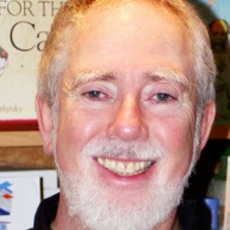It's noisy, noisy overhead,
the birds are winging south,
and every bird is opening
a noisy, noisy mouth.
They fill the air with loud complaint,
they honk and quack and squawk—
they do not feel like flying,
but it's much too far to walk.
Published:
1993
Length:
Regular
Literary Movements:
Children's
Anthology Years:
2022
Themes:
Nature
Literary Devices:
Anthropomorphism
the attribution of human characteristics or behavior to a god, animal, or object
End Rhyme
when a poem has lines ending with words that sound the same
Imagery
visually descriptive or figurative language, especially in a literary work
Onomatopoeia
A word that, when spoken aloud, has a sound that is associated with the thing or action being named.
Personification
the attribution of human qualities to a non-human thing
Quatrain
A stanza made of four lines.
Rhyme
correspondence of sound between words or the endings of words, especially when these are used at the ends of lines of poetry

